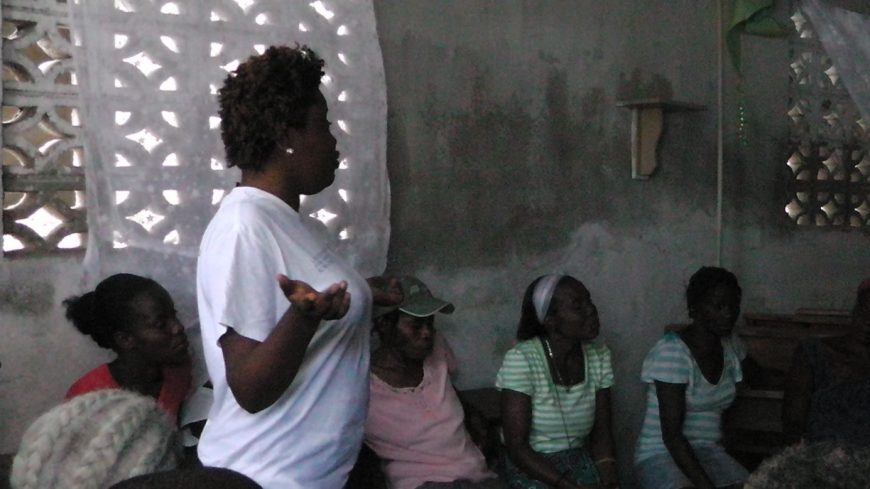
On this sunny Wednesday morning of June, some thirty people gathered in the church of the Savanne, Les Cayes city, on the occasion of a community workshop to raise awareness and discuss solutions to prevent violence against children. “Child protection is our responsibility. Each one of us has a key role to play in the community to prevent its members from being subject to violence, and to tackle violence”, says the Chairman of the Protection Committee. Participants agreed with the president’s speech, punctuated by laughter and cries of young children playing near the place.
Following Hurricane Matthew, which swept across the southern peninsula of Haiti in October 2016, a large number of Haitians found themselves in a situation of great vulnerability. The situation of children is particularly at risk: many have no place to stay, and access to education is compromised.
Increased vulnerabilities
Following the destructions caused by Matthew, many families lost one or more of their sources of income. Without means and unable to afford the costs to meet the basic needs of their children, parents are forces to take them out of school, or even to get away from them. Girls are the first victims of this situation, as they are usually taken out of school before boys. Children are therefore more exposed to abuse, physical and psychological violence.
Facilitating access to education and to basic needs
In response to this situation, ACTED is providing support for the schooling and protection of 300 children in Les Cayes city (Sud department). This intervention includes several components: first of all, ACTED pays the school fees and the costs for school material, providing a financial support to families to send their children back to school. To ensure long-term schooling, ACTED also provides support to parents for the development of income-generating activities, for example by donating materials and tools that will enable them to start a small business. Stable income-generating activities will enable families to take care of their basic needs, a crucial step for the protection of their children, including school fees.
Achieving sustainable change
ACTED has also strengthened a Child Protection Committee composed of influential members of the community. This committee is in charge of organising community awareness sessions to provide psychosocial support, prevent and respond to cases of child abuse and violence. In the long term, the Committee will become an autonomous community structure in order to put the new mechanisms for the prevention and management of cases of abuse and violence on a long-term footing.